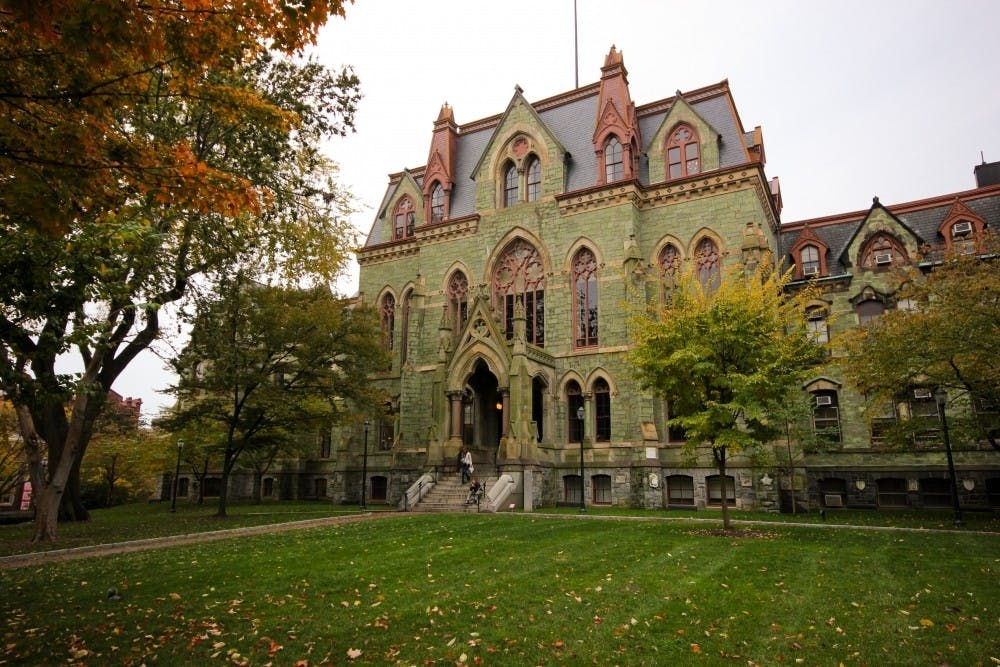While some Penn students are visiting home or working in various cities this summer, almost 1,300 undergraduates are currently registered for summer classes on campus.
Penn offers one 11-week summer session and two sessions that are half that length. Summer classes are generally smaller in size, and, unlike fall and spring semesters, students pay tuition per course unit. Student Registration and Financial Services offers a financial aid application, but recommends that students “attend summer classes only if absolutely necessary” to “avoid taking on additional debt.”
Some students say that the cost of summer classes can be a deterrent for students considering enrolling.
“I think that’s the main consensus is that people would like to take summer classes but it’s too much money,” said rising College senior Jenny Wang.
Tuition for summer classes is not uniform across the different schools. According to the Penn Summer website, the cost per course unit ranges from $4,224 for courses in the College to $5,550 for those in Wharton.

While students in the College accounted for approximately 63% of the undergraduate body last year, they made up of 86% of the undergraduate summer session enrollment in 2017, according to data provided by Director of Enrollment Management for LPS Miriam Wright.

Related:
For some Penn students, the internship search for summer 2019 is already underway
Why more Penn students than ever are opting for abroad programs during the summer
The Penn Summer website also lists a general fee that starts at $362 and increases depending on course load and session length. Tuition for summer classes is calculated differently because Penn’s summer sessions are run by the College of Liberal and Professional Studies, which calculates tuition on a course unit basis.
Wang said that she was reluctant to enroll for Physics 102 during the second summer session due to cost, but wanted to learn the material before taking the MCATs this fall. She was unable to fit the class into her schedule last semester.
She also said that she has heard there isn’t much aid for summer classes, and that people usually finance them through other means.
Last year, out of the 1,091 undergraduates enrolled in all summer sessions combined, SRFS awarded 123 scholarships according to SRFS Director of Communications Paul Richards.
“I’ve talked to two people and they’ve mainly managed to take these summer classes through outside scholarships,” Wang said.

A scholarship from the Office of Student Disabilities Services made summer classes possible for rising Engineering junior Lauren Drake.
“Someone from SDS was just like ‘yeah there’s a scholarship available you should apply,” Drake said. “I couldn’t have afforded it without the scholarship, but with the scholarship it was just like I can take a load off by not having to take these classes in the fall.”
In order to fulfill engineering requirements, Drake is taking LING 001 in the first summer session and CIS 110 in the second, in addition to doing research on campus. With only 16 students, Drake said that LING 001 is one of the smallest classes she has taken at Penn.
Drake also said that taking classes during the summer is “pretty smooth” compared to fall and spring semesters.
“I mean it’s fast paced but it’s not too demanding so it’s manageable for sure,” Drake said.

Like Drake, rising College sophomore Felix Cui said that his summer class is giving him the opportunity to get certain requirements out of the way. He said he first considered them after hearing advice from upperclassmen.
“A lot of people have told me that just summer course are easier in general and I’ve heard that ECON 001 especially, even though it’s a little intensive, it should be relatively easier than the semester.”
Drake added that she liked taking classes on campus while fewer people are there.
“It’s sort of like you have a lot more breathing room I guess," Drake said. “And then I’m not living in a dorm anymore so I’m a little more on my own too, so it’s more of an independent feeling than when, you know, you’re in the thick of it with everyone here.”



